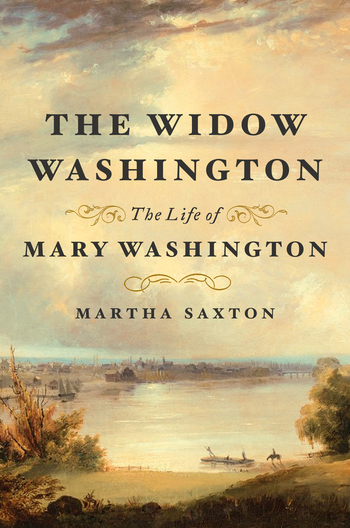Authors:
Historic Era: Era 3: Revolution and the New Nation (1754-1820s)
Historic Theme:
Subject:
Fall 2020 George Washington Prize | Volume 65, Issue 8


Authors:
Historic Era: Era 3: Revolution and the New Nation (1754-1820s)
Historic Theme:
Subject:
Fall 2020 George Washington Prize | Volume 65, Issue 8
Excerpted from the George Washington Book Prize finalist The Widow Washington: The Life of Mary Washington, by Martha Saxton (Farrar, Straus and Giroux).

Mary Ball Washington was orphaned early, grew up poor, and was later widowed with five children under the age of twelve to support. She did the best she knew how for her family in the harsh world of the eighteenth-century Chesapeake. She poured her exceptional vitality, deep religious convictions, and unflagging persistence into her first son, George. We still admire him for the honorable way he used those qualities to create a country and a government. Why has she not received historians' respect for her years of lonely and challenging work?
Since her death in 1789, the first president's mother has endured a tumultuous half-life. George Washington's first chroniclers extolled her as the pious and self-sacrificing mother of the sainted president. President Andrew Jackson praised her richly at a ceremony to lay the cornerstone for a monument planned for her. But after the Civil War, she started a steep descent in the esteem of her son's scholars. By the mid-20th century, she had become unloving, jealous, whiny, and greedy. That monument was never erected.
The caricature of an incompetent, crude, imperious, selfish, and unloving woman flowered fully in the 1940s and '50s with Douglas Southall Freeman's massively detailed six-volume work. In James Flexner's Pulitzer Prize-winning Indispensable Man, the author called her a "termagant." Most recently, Ron Chernow described Mary as "crude," "illiterate," "self-centered," and "slovenly." In the index to his biography of Washington, subcategories for Mary include "critical nature of," "stubborn and difficult personality of," and "thwarting of GW's career attempted by." (Martha, by contrast, merits the entries "kindness and generosity of," "strength and practical nature of," "support and devotion of.")
As I read George Washington's biographers' shape-shifting accounts of his mother, my confusion gave way to anger. I have spent my life studying and writing North American women's history to try to retrieve some of what has been lost, to try to replace incomprehension or criticism with historical context, and to substitute evidence for stereotypes and sentiment. I research and write to try to be fair to women whom historians have ignored or misjudged. Mary had clearly suffered from egregiously unfair treatment.
I am normally not drawn to write about women whose fame derives from men or about slaveholding women. But the double standards many historians used in judging mother and son and more than a century of gratuitous hostility toward Mary called out to me for a response. Trying to be fair to a slave-owning woman was a complicated challenge, as complicated as our nation's history. It was a challenge analogous to those historians in the past had faced in writing about her, at